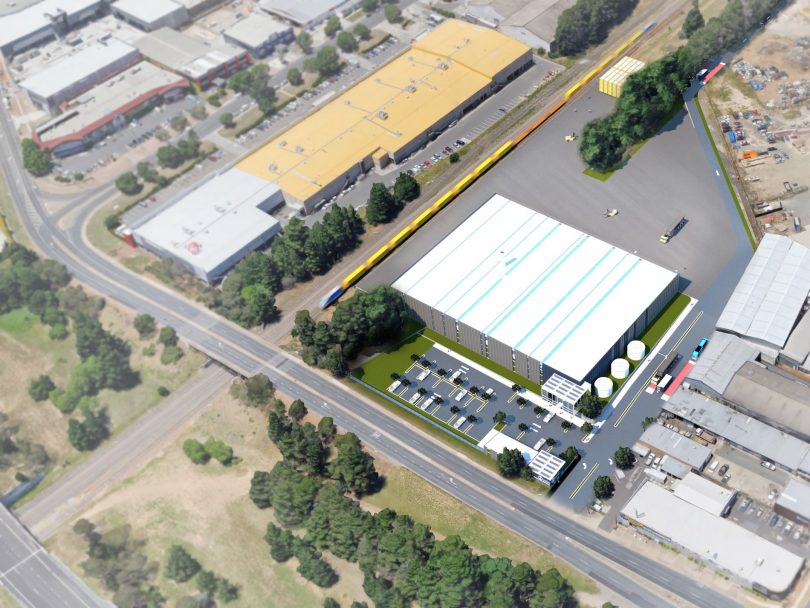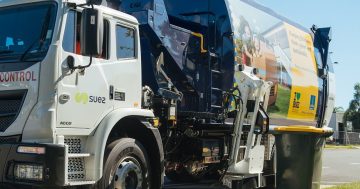
Garbage truck drivers will continue strike action across the ACT. Photos: File.
Chief Minister Andrew Barr comes back to work today after a post-election break and needs to clean a couple of messes – one industrial and the other political, although both are about rubbish.
Rolling industrial action by garbage truck drivers employed by the contractor Suez continues across Canberra suburbs and the hotter and closer to Christmas it gets the more likely the dispute will be on the nose with the community.
The already well-paid drivers want a 12 per cent pay rise over four years and Suez, citing the current pandemic induced economic situation, wants to give them only eight.
Just because the drivers are already on a reasonably good wicket is irrelevant – they have every right to pursue a wage claim, and Suez’s argument is opportunistic.
But a rubbish strike at this time of year, even with the government providing drop-off points for household garbage, is not something the city needs.
It may get sorted out in the Fair Work Commission and Mr Barr may not believe he needs to get involved but the row has gone on long enough and he should show some leadership and bend a few ears or offer a peace proposal.
Just because the government contracts out the service does not mean it can wash its hands of the situation.
The other waste mess is entirely of the government’s own making.
At one point in the ACT’s quest for a zero-waste future, it invited proposals from industry about how to achieve it, essentially to divert rubbish from landfill through recycling and other processes.
Proposals duly turned up, including Capital Recycling Solutions plans’ for a plant in Fyshwick that originally included a waste to energy operation like those in Europe.
That quickly became a political problem when inner south groups and Labor’s partners in government, the ACT Greens, became worried about air quality and potential contaminants.
The new Waste to Energy policy promptly put out that bushfire with a ban on the incineration of rubbish.

Capital Recycling Solution’s proposed Fyshwick plant looks dead in the water but the fallout is far from over.
But CRS adjusted its proposal to a household waste processing and recycling operation.
By the October election, an alliance of inner south groups and Fyshwick business people had convinced the Greens that the plant was not a good idea.
Facing a Green insurgency in Kurrajong, and elsewhere as it turned out, Labor officially blackballed the CRS proposal, even though the company had spent millions getting its EIS accepted and the plans to the DA stage.
Even the Liberals were quick to reassure voters that the Fyshwick plant was not a goer.
Not surprisingly, CRS believes it has been led up the garden path, and the government has to find a way to extricate itself from the situation and meet its election commitments while also having to deal with other proposals such as the big building and commercial waste recycling facility Hi-Quality plans in Tennant Street.
The government, it seems, has accepted the view that certain industrial processes are no longer compatible with the more gentrified Fyshwick, and that it now wants all waste facilities co-located in Hume.
It’s a mess that could cost taxpayers plenty if it ends up in the courts.
Transport and City Services Minister Chris Steel and Planning Minister Mick Gentleman have carriage of the debacle but those two arms of the bureaucracy appear to have been at odds.
The other player is new Environment Minister Rebecca Vassarotti, who has already flagged that the Fyshwick waste question is top of mind.
It would be best if Mr Barr stepped in because a lot of moving parts will need to be coordinated and the Territory’s interest protected.
And the government will still need to come up with those waste solutions.













